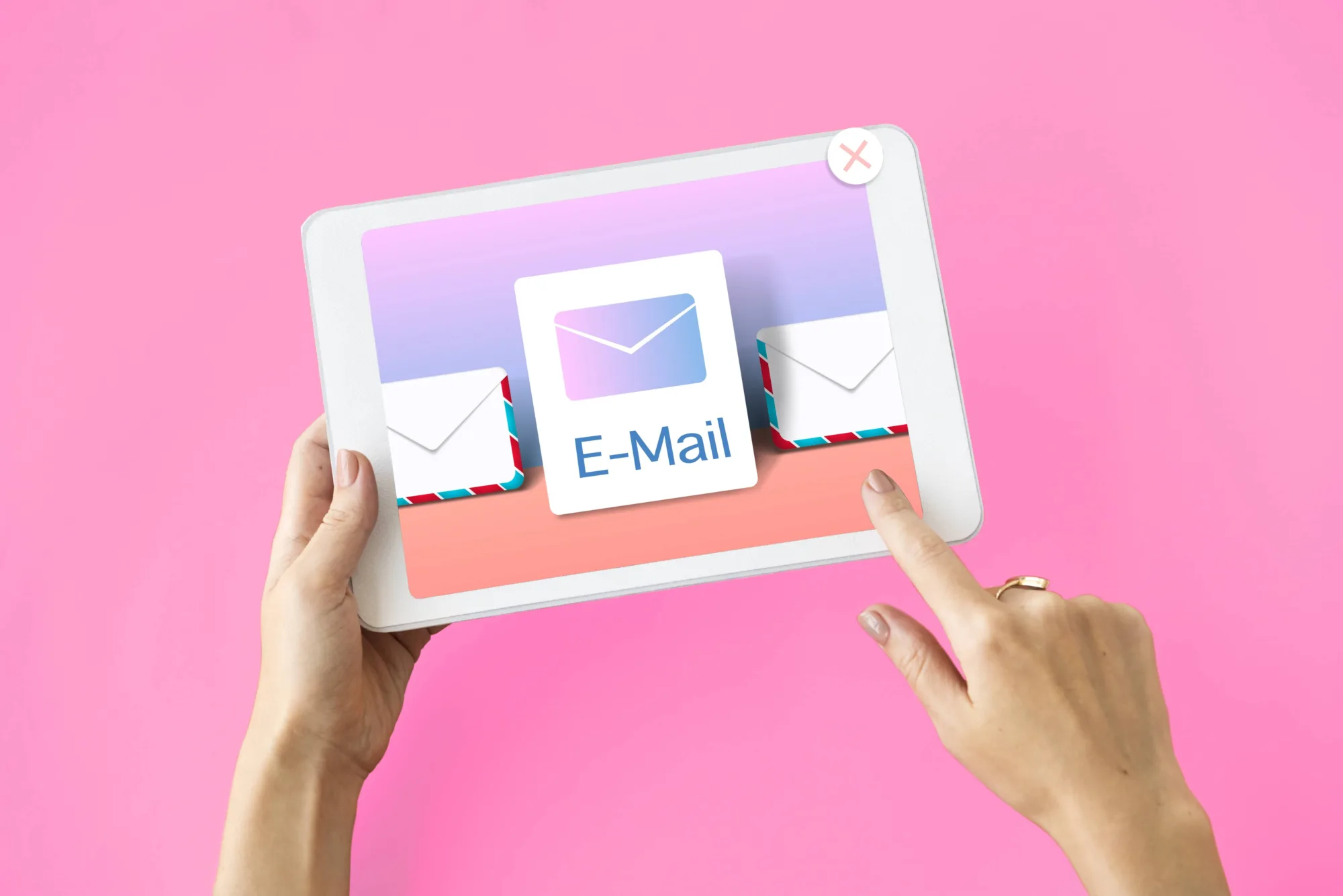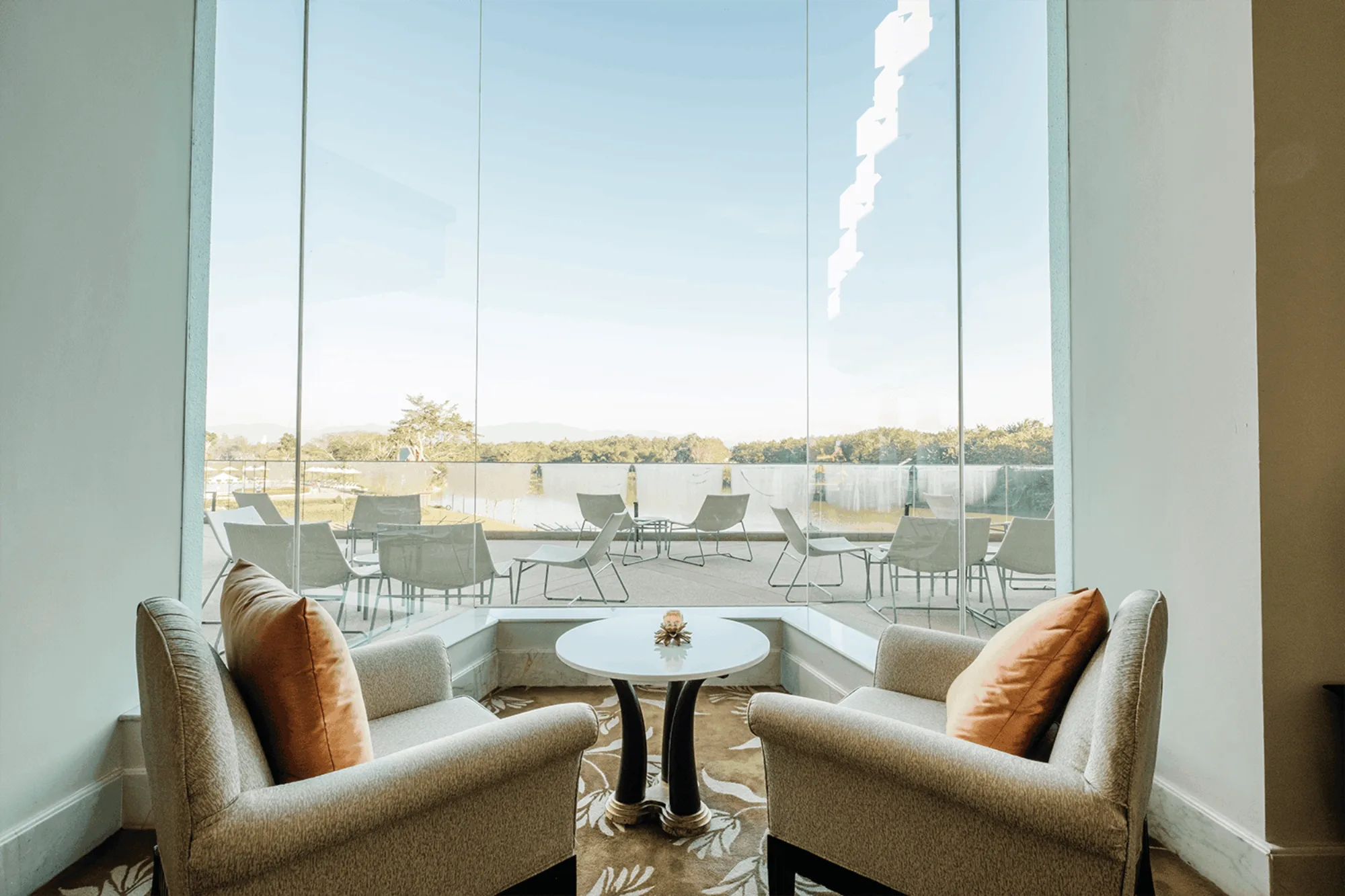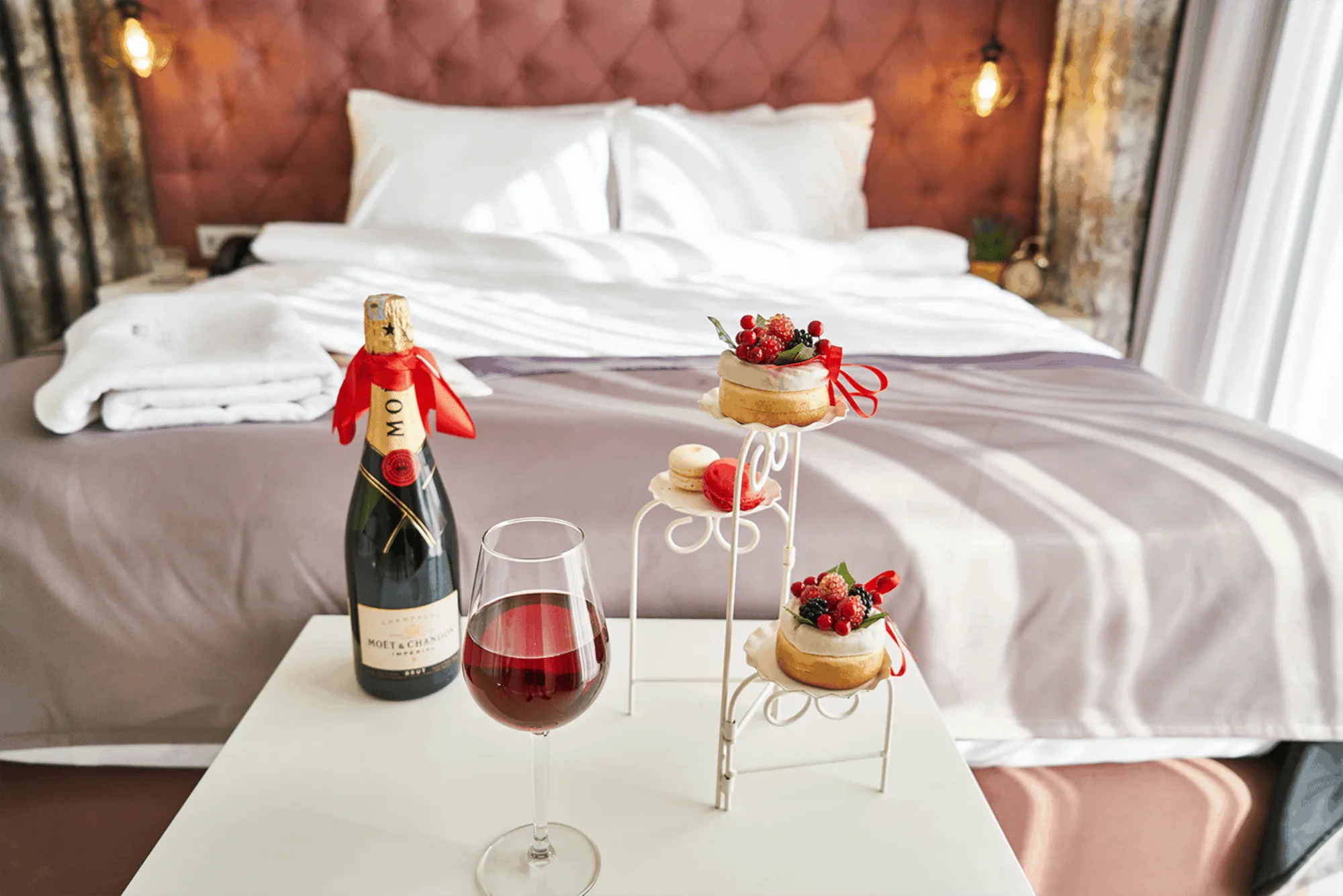Today, many technological tools are available to help you be competitive and optimise your hotel management. But you already knew that!
✅ You have the PMS + Channel Manager + POS + Booking Engine combo
✅ You have your white label Guest App (otherwise here is a testimonial about the advantages of the Bowo Guest App)
In this article, we outline the huge benefits of integrating CRM into your software suite and how you can use it to generate more revenue, maximise the customer experience and build guest loyalty.
First, a little clarification:
What is a CRM for hotels? What's the difference between a CRM and a PMS?
PMS = Property Management System
It allows you to manage room/property planning and billing. Any customer data that is stored is mainly used for inventory allocation and invoicing.
CRM = Customer Relationship Management
As the name suggests, its purpose is to allow you to manage the relationship with your customers: potential and actual ones.
CRM enables you to centralise customer information but also to manage all the hotel's interactions with each customer on the different channels (OTA, hotel website, email/SMS/social media marketing campaigns, etc.).
When used properly, it is a very powerful tool for guest conversion, retention and loyalty. Let us take you through it in 4 key steps.
For the sake of clarity, we will call "Leads" or "Prospects" all the people who have simply gathered information via your various sales channels or who have made a booking enquiry without payment; and we will call "Customers" those who have entered the purchasing process by leaving at least a credit card imprint and who have additional sales or cross-selling potential, or who can be recommended.
Hotel CRM: how to use it
1. Automate to improve efficiency and quality
The primary function of the CRM, as we have said, is to collect and centralise customer data in order to then be able to send communications concerning their stay, offer them additional sales and attempt to win their loyalty. It must also provide you with an email editor with templates that you can customise according to your establishment's visual identity.
First and foremost, make sure that all guests will actually become YOUR customers.
You may already have some direct sales through your website – otherwise we recommend it because yes, it is possible to make direct sales and not just rely on OTA bookings. In this case, you are bound to have your customers' basic details, namely SURNAME + first name + EMAIL ADDRESS and probably also their PLACE OF RESIDENCE and TELEPHONE NUMBER.
But what about guests who booked through OTAs and other partner sales platforms? In this case, the customer data belongs to the source platforms. Your guest may have booked their overnight stay on ExpedAirBN 'bookinAdvisor, checked-in, had their stay and left without you knowing those basic details. You might sometimes have their phone number OR email address (rarely both), in other cases the address is encrypted by the OTA.
Mindful of this, many hotels have been trying for a long time to implement procedures at check-in so front desk staff can collect information such as email address, telephone number, where the guest lives and how they came to know the establishment, possibly also the type of guest and the reason for their stay, or even their date of birth and the names of all the people accompanying them. But are these information cards filled out systematically? (We're willing to bet they are not, but if we're wrong, well done!) But even if they are, someone then has to take the time to manually input them in your client file. Are you sure your customers' handwriting is always clear, and that the data will be input without any errors?
To make sure you don't lose information, waste time and/or make mistakes, CRMs now work automatically by retrieving all existing data from your different channels, matching and processing duplicates so that each customer interaction is recorded in the correct guest record.

This is CRM 101. Now here's how to then enrich your database: by scheduling an automatic booking confirmation email for each customer - including those from OTAs and with an encrypted email address. As we said in our article "9 tips on how to turn your booking confirmation email into a powerful marketing tool", 72% of guests open them and you can get up to 25% of clicks. Give them immediate access to the GuestApp, a tool to help them plan their trip, where their last name, first name, email address, phone number, address and arrival time will be required to access it or when doing their pre-check-in online. If you do not have it, be sure to tell them clearly that they are in direct contact with you now, give them your details and ask them to communicate theirs via a form included directly in the email (maximum 5/6 fields to be filled in at one time).
You can then use the CRM to test different communication processes and create automatic emails for the different stages of the customer journey. Of course, always make sure you are GDPR-compliant (General Data Protection Regulations).
2. Segment data to customise your marketing/sales approach
So now you need to schedule a whole series of emails: a booking confirmation email, another one a few days before the guest arrives, another to welcome them on the day they arrive, a thank you email after they leave and another to ask for a review of their stay...
⚠️But a word to the wise, make sure you don't turn into a spammer!
There is nothing worse than a raft of impersonal emails; it just causes a lot of unsubscribes from your database and does nothing to improve the customer experience. Sure, with the use of customisable variables you can add the first and last names of your recipients, as well as predict the language of your emails according to the where the customer is from, but this is not enough to be meaningful.
💭Imagine: you are a guest at a hotel that asks you to provide personal information that you have already sent, or to fill in a long questionnaire that you don’t see the point of... or the hotel tells you about local family attractions and children's activities in the hotel when you are travelling alone on business; maybe it sends you a list of the best local bakeries when you are allergic to gluten; or inundates you with emails containing "exceptional" deals that are complicated to book and have no price tag. Do you unsubscribe after the first or second email? Can't wait to get here?
You absolutely need to segment your database carefully, to make sure you send the right messages to the right people at the right time. This will engage your prospects and customers in a personalised experience, and they will be more likely to interact with your communications and service offerings.
What do you need to take into consideration, as far as possible?
- Where the customer is from: what language does he speak? What cultural conventions need to be respected? (The Japanese, for example, require you to be extremely precise. If you gare oing to provide a fruit bowl in their room, you need to say what fruit, how many of each, and for what price of course.
- Client typology: age, alone/as a couple/with friends/family/colleagues, the reason for their trip.
- What source they came from: Is this a direct customer from your website? An OTA customer? Did they react to one of your campaigns? Was it a special deal (if they clicked on the Valentine's Day promotion, chances are they are coming as a couple)?
- Where they are in the customer journey: First contact for a request for information by email, Facebook, OTA/provisional booking/firm booking/ they downloaded your guest app/ they arrive tomorrow/ they are here/ they have left/ they were an additional sales or cross-selling customer...
If you provide the GuestApp to your customers, you can establish a cross-channel communication flow, sending the message via the most appropriate channel depending on where they are in their purchase journey, as follows:

You can set up buyer personas to then devise customised advertisements and targeted email streams. These enjoy an opening rate that is 29% higher than impersonal mailshots, and generate 41% more clicks.
In general, the closer you get to hyper-personalising the customer experience, the higher your satisfaction and transformation rates will be.
3. Analyse your hotel's CRM data: the cornerstone of any successful marketing strategy
Of course, it is not a matter of 'following your gut'. A marketing strategy needs to be built and honed. You will be investing in customer acquisition and satisfaction, so you will want to be able to see a clear return on that investment.
What have you put in place, with what target audience, with what budget? Is it working. And how much does it earn you, in the end? You will test, measure and draw conclusions about the campaigns or the offer. What will your key performance indicators (KPIs) be? How are you going to build your dashboard?
Some of the essential features are:
- The Lead/Client ratio
- The average cost of acquiring the lead and the customer
- The average basket for each persona
- Offer performance rate per persona
Even better, we recommend that you practice Lead Scoring: you give a rating to your leads and customers depending on the actions they took throughout their purchase journey.

For example :
You can give 1 point to anyone who has interacted with your social networks, your website or your emailing campaigns; 2 points if they clicked on a deal ; 3 points if they filled out an information request form or contacted you directly ; 4 points if they didn't follow through on their « basket » - perhaps they have a provisional booking but haven't confirmed it, or they started the online reservation process on your website and got interrupted, in which case it is worth sending them a retargeting campaign before they book elsewhere, 5 points if they completed the booking.
You can give 'bonus points' to anyone who has provided you with additional personal information (for example, if he or she signed up for the GuestApp or gave you their date of birth in response to your mail) ; 2 additional points for any person who made an additional service purchase (a booking in your Spa or an outing via the concierge for example).
This is not a lead scoring programme template, just a few examples to help you understand the principle. You should build the template that fits your priorities.
This will allow you to measure the maturity of each customer's purchase journey and then focus on the best leads: those who cost the least and earn the most in concrete terms. You will probably aim to generate fewer leads, but they will be more qualified. Several studies show that the increase in qualified leads through automated marketing is around 450%!
To follow up on the scoring structure, you will be able to build and configure a marketing automation script in the CRM, with actions triggered by the behaviours of your leads and customers on all your different channels. For example, if your customer has checked in but still not accessed your Guest App, you can send him an email. Then if this is not opened, a follow-up text message.
In summary, analyse and optimise the customer journey at each stage: when they find you, once the reservation is made, before their arrival or once on site for the purchase of additional services. You can then make them an ambassador and retain their loyalty, so that they return to your establishment or another one in your group. Which campaign worked? Using which channel and at what time? Which activity prompted families to become customers of your concierge service? What was most popular with business travellers? With men? Women? 25-35 age bracket? 55 and over? etc. Do some A/B testing!

You can also plan market launches with test campaigns. For example, you know that the average basket is bigger for Americans than for Europeans, and their stays are longer. Great! However, they are very few of them in your clientele. But is what you are offering likely to be suitable for them? Set a test budget and KPIs, then launch campaigns and decide if it is a good marketing and business development strategy.
If you want to optimise an existing market, the analysis principle is broadly the same and you can test different selling prices.
Using the example of the US customer base that you know is captive during the Spring Break period; set a higher price on the sales channels that target them, such as VRBO (Expedia), and if you can, create different packages at different prices to understand what works best.
The analysis will enable you to set your sales goals and forecast your revenue.
4. The positive impact of CRM use on the customer experience
There comes a point where digital is no longer enough to engage and retain the customer: your guest will stay in your establishment in the flesh, he will meet real people on your staff. It would be rather a shame if their experience started out in a personalised fashion while the dialogue was on the web, only for them to feel they were just a number, or a complete stranger, once they arrived.
In Bali, in many hotels, the team takes care of welcoming you sometimes even before your arrival at the hotel, by chartering a driver who picks you up at the airport or in another part of the island, without it being an ultra-luxurious service like in Europe. From the very first contact, you are called by your first or last name, and when you come across staff in the hotel's public areas, they ask you by name how you are. Don't feel this is phony; they are habitually and culturally warm and sincere.
By saving time on administration tasks and using the customer information compiled in the CRM, your reception staff can better prepare your guests' stay. You know which campaign they came through, which emails they opened and where they clicked, which page of your site they consulted, which Instagram photo they liked, whether they accessed their customer account on the application and checked out your concierge service, if they asked you questions before their arrival via chat, at what time they are due and potentially on what flight or train, or if they have come by car, etc. With a good marketing strategy upstream, you may know the context of their trip, who they are coming with and what their interests are. Create procedures and train your reception staff to make the most of this information.

You may decide to prepare their room with little personal touches, offer them discount coupons for a partner activity, tell them about a current event or activity that might interest them, you may have sold them a bowl of fruit, a bottle of pink champagne, a bouquet of flowers, a basket of delicacies, family cards for Eurodisney... you might have planned a Vegan breakfast...
Brainstorm with your staff, they will be delighted: what ideas do they have to please each type of customer, such as little 'freebies' or small gifts at attractive prices. Make good use of the team's handwritten notes as well.
Have the guests left? Gone but not forgotten! Offer them incentives to recommend you to their friends, or their networks if they are influencers, or to join a loyalty programme. Send them a message on their birthday, and a reminder when it's the anniversary of their last visit. With these pointers you will have improved on the pre-in-after stay customer experience, and the 'I-love-my-job' feeling of your staff.
Take photos and have guests sign release forms, then tell the world (and especially the most qualified leads) how good it feels to stay at your place ☺
In conclusion, a good CRM allows you to enrich your customer knowledge and share this information with the whole team, so you can personalise the customer experience and optimise their satisfaction. The guest is the focus, not the hotel. Ultimately, with the right strategy, this will have a positive impact on your turnover and profitability.
So what are you waiting for?
Similar articles
